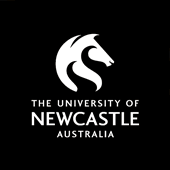Horatio Hale, 1846
From United States Exploring Expedition during the years 1838, 1839, 1840, 1841, 1842 under the command of Charles Wilkes, Vol.VI Ethnography and Philology, by Horatio Hale, Philologist of the Expedition, Philadelphia: Lea and Blanchard: 1846
[p.106]
[The aborigines] are excessively superstitious and yet almost devoid of religious (or devotional) feelings; with the strongest attachment to their native district, they can rarely be brought to spend more than three days in one spot . . . and though their idiom abounds in complex inflections, like those of the American indians, it has less facility of composition than the English. During our stay in New South Wales we had good opportunites for acquiring information concerning this singular variety of the human species.]
[p.110]
Religion
The lack of religious feeling in these natives has already been mentioned. The missionaries have found it impossible, after many years’ labor to make the slightest impression upon them. They do not ascribe this to any attachment, on the part of the blacks, to their own creed, if such it may be called, for they appear to care little about it. Some of their ceremonies, which partook of a religious character, have been lately discontinued, but nothing has been substituted in their place. It is not true, however, as has been frequently asserted, that the natives have no idea of a supreme being, although they do not allow this idea to influence their actions. The Wellington tribe, at least, believe in the existence of a deity called Baiamai, who lives on an island beyond the great sea to the east. His food is fish, which come up to him from the water when he calls them. Some of the natives consider him the maker of all things, while others attiribute the creation of the world to his son Burambin. They say of him, that Baiamai spoke, and Burambin came into existence. When the missionries first came to Wellington, the natives used to assemble once a year, in the month of February, to dance and sing a song in honor of Baiamai. This song was brought there from a distance by strange natives, who went about teaching it. Those who refused to join in the ceremony were supposed to incur the displeasure of the god. For the last three years the custom has been discontinued. In the tribe on Hunter’s River, there was a native famous for the composition of these songs or hymns, which, according to Mr Threlkeld were passed frrom tribe to tribe, to a great distance, until many of the words became at last unintelligible to those who sang them.
Dararwirgal, a brother of Baiamai, lives in the far west. It was he who lately sent the small-pox among the natives, for no better
[p.111]
reason than that he was vexed for want of a tomahawk. But now he is supposed to have obtained one, and the disease will come no more. The Bálumbal are a sort of angels, who are said to be of a white color, and to live on a mountain at a great distance to the southeast. Their food is honey, and their employment to do good “like missionaries”.
It is possible that some of these stories owe their origin to intercourse with the whites, though the great unwillingness which the natives always evince to adopt any customs or opinions from them militates against such a supposition. But a being who is, beyond question, entirely the creation of Australian imagination, is one who is called in the Wellington dialect Wandong though the natives have learned from the whites to apply to him the name of devil. . . . If they are ill, they say Wandong has bitten them. No one can see this being but the núyargir, or conjurors, who assert that they can kill him, but that he always returns to life. He may, however, be frightened away by throwing fire at him.

